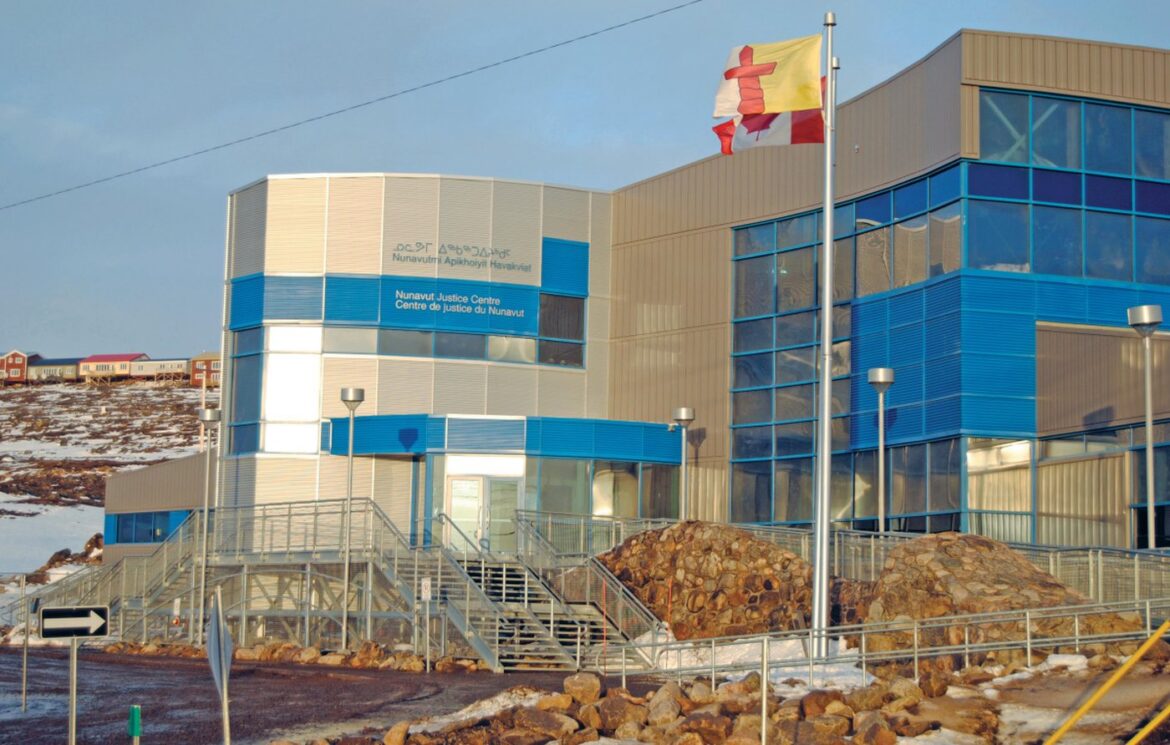By Kira Wronska Dorward | Nunavut News
Nunavummiut seeking legal aid sometimes have their share of frustrations.
Finding an advisor in smaller communities can be impossible. Most positions remain vacant outside of the largest centres while the territory and Nunavut Legal Services (LSB, also known as Nunavut Legal Aid) scramble to meet the needs of clients despite having few staff.
This became apparent on Nov. 5 when Netsilik MLA Joseph Quqqiaq inquired in the legislative assembly about the complete lack of legal aid workers in Gjoa Haven after a fire destroyed the Government of Nunavut office housing legal aid in the community in March 2022.
“When I last raised this issue during our winter sitting,” said Quqqiaq, “the minister [of Justice David Akeeagok] confirmed that the Legal Services Board headquarters had acquired a new office space in Gjoa Haven… this is wonderful news… can the minister clarify how many positions are currently filled and how many positions are vacant at the Legal Services Board headquarters?”
Akeeagok replied that there was one court worker in the community, with two positions being under job request actions, and five others being reviewed.
LSB CEO Teena Hartman, in an email to Nunavut News, stated that “LSB assigns staff lawyers to each clinic and each clinic employs Inuit court workers in their regional communities, as resources and availability allow.”
Department of Justice director of policy and planning Stephen Shaddock noted that the Nunavut Legal Services Board is responsible for providing legal aid services to financially eligible Nunavummiut in the areas of criminal, family and civil law. Although the board is largely funded by the Government of Nunavut, it operates independently of the government.
“The board’s office in Gjoa Haven has five positions allocated from the Government of Nunavut, which are currently vacant,” Shaddock stated. “The board is working with the Government of Nunavut to staff these positions. The remaining legal aid staff in the territory are staffed directly by the board and its legal clinics located in Cambridge Bay, Rankin Inlet and Iqaluit.”
Hartman said there’s high turnover among community court worker positions, and “right now the Qikiqtani region appears to feel this the most.”
“Currently, the Kitikmeot region has one full-time court worker, and four part-time court workers in the region. The Kivalliq region has two full-time court workers and two part-time court workers. The Qikiqtani region has four full-time court workers and three part-time court workers with an additional four vacancies in the Qikiqtani region. The regional clinic has had to re-assign the work as best it can to meet the demands of the clients and the court.”
Quqqiaq, on Nov. 5, asked Akeeagok about how “the Legal Services Board’s current business plan indicates that one of its priorities is to ‘continue to improve service to our clients, including access to justice and public legal education as to ensure high quality legal services.’ What specific actions has the Legal Services Board undertaken to provide public legal knowledge and education of the law in the Kitikmeot region?”
Akeeagok’s response was to commend the work of the organization, as well as pointing out that earlier in the day, he had reported that “the Legal Services Board, working with its three regional legal aid clinics, submitted funding requests to a tripartite working group on Indigenous court workers program of Justice Canada. The board and its clinic were successful in obtaining approximately $195,800 to develop and deliver a comprehensive training for all Nunavut Inuit court workers. This in-person training is scheduled for the week of Dec. 9, 2024, in Iqaluit.”
Commenting on this training, Hartman said, “Clinic court workers indicate that that low pay is a fundamental issue for them. Many have also requested more training and support (for example, equipment) from their clinics. More recently, as legal aid works to reimplement required processes and reporting structures, court workers have indicated frustration with this work. In recent years the ransomware attack, the impact of the pandemic and its fallout have created obstacles for organizations around the territory, including legal aid. LSB has been working hard to rebuild required processes and systems that were lost during this time, and court workers have indicated struggles/frustration with this.
“LSB has responded to these complaints in a couple of ways. We learned last year that our Inuit court workers, regional clinic staff and administrative/financial staff are apparently paid lower than their southern Canadian counterparts, and also lower than those in comparable positions in Nunavut. We also learned of the planned GN salary increase (which we understand recently became effective), where government employees received a 9 to 11 per cent salary increase. Earlier this year, LSB submitted a business case to the GN for a funding increase that was based on raising compensation for staff to ensure approximate parity with GN workers. The priority for LSB is the Inuit court workers, clinic, finance and administrative staff, who were already below those pre-existing levels. In recent weeks, LSB learned that the GN has denied that request.”
The nearly $200,000 received from the federal Indigenous Court Worker Program is designed “to bring together the entire Inuit court worker team for training and support… Training will be provided on core court worker duties, supporting/communicating with clients, team building, court processes and some technical training on our electronic systems as well. There will also be time to work with the court workers to explore how we can grow and support this program,” said Hartman.
“LSB sees this training as an important step in acknowledging and supporting our court workers, valuing their contributions to legal aid, and improving their experiences as legal aid employees. LSB does not see this as one-off event, but rather the beginning of a renewed commitment to a vital part of our legal service delivery.”





